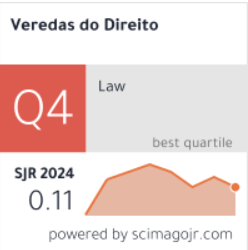SOCIO-ENVIRONMENTAL MEDIATION AS AN INTEGRATING INSTRUMENT
DOI:
https://doi.org/10.18623/rvd.v20.2217Abstract
This article aims to analyze the possibility of using mediation as a possible end in resolving socio-environmental conflicts. The discussions involving the protection of the right to an ecologically balanced environment are growing in the country, especially after major environmental disasters, since they generate complex, lengthy, and time-consuming proceedings. Countless people have had their lives changed and, rightfully so, these people expect a swift solution from the Judiciary. The Judiciary, in turn, faces difficulties in settling the above-mentioned disputes, either due to the absence of specialized technical staff in environmental issues, or due to the lack of resources for the solution of these conflicts, or even due to the well-known work overload. Thus, the objective of this paper is to analyze socio-environmental mediation, an extrajudicial remedy to promote access to justice in environmental disputes. To this end, the deductive method was used, based on a bibliographic review of legislative documents. In the end, it will be concluded that the complexity of the facts underlying socio-environmental conflicts requires the use of dialogical means for their composition since the simple acceptance or rejection of a certain claim is often not enough to settle disputes of this nature.
Published
How to Cite
Issue
Section
License
I (we) submit this article which is original and unpublished, of my (our) own authorship, to the evaluation of the Veredas do Direito Journal, and agree that the related copyrights will become exclusive property of the Journal, being prohibited any partial or total copy in any other part or other printed or online communication vehicle dissociated from the Veredas do Direito Journal, without the necessary and prior authorization that should be requested in writing to Editor in Chief. I (we) also declare that there is no conflict of interest between the articles theme, the author (s) and enterprises, institutions or individuals.
I (we) recognize that the Veredas do Direito Journal is licensed under a CREATIVE COMMONS LICENSE.
Licença Creative Commons Attribution 3.0








